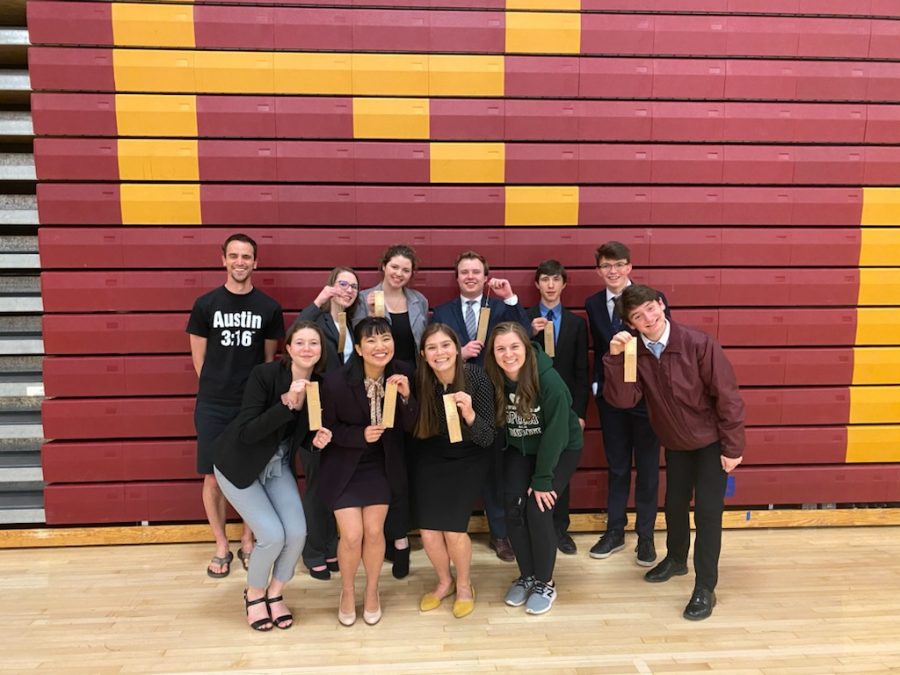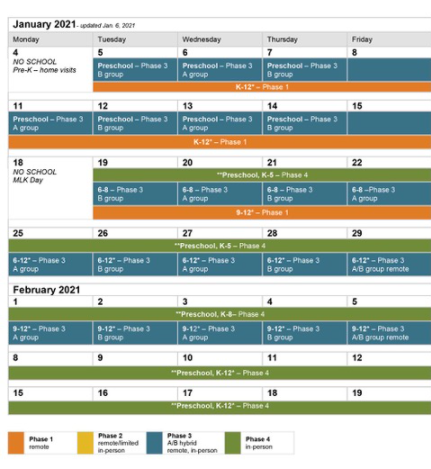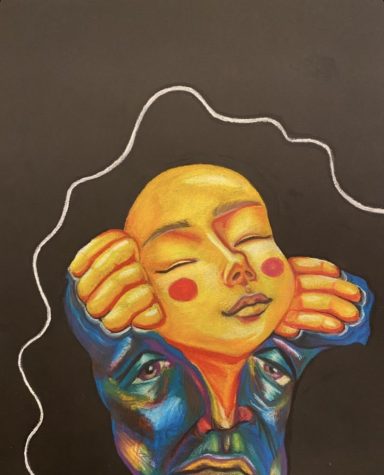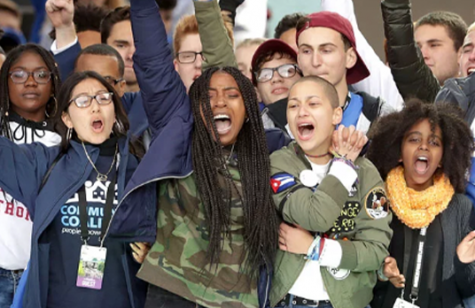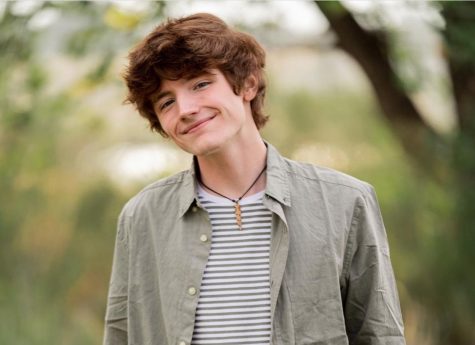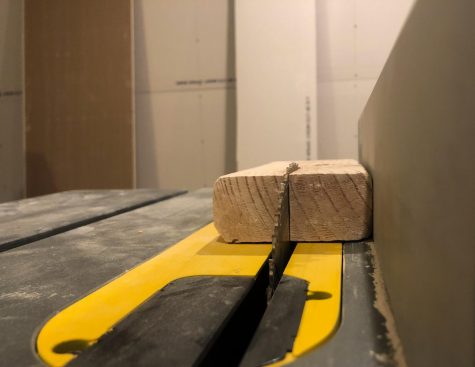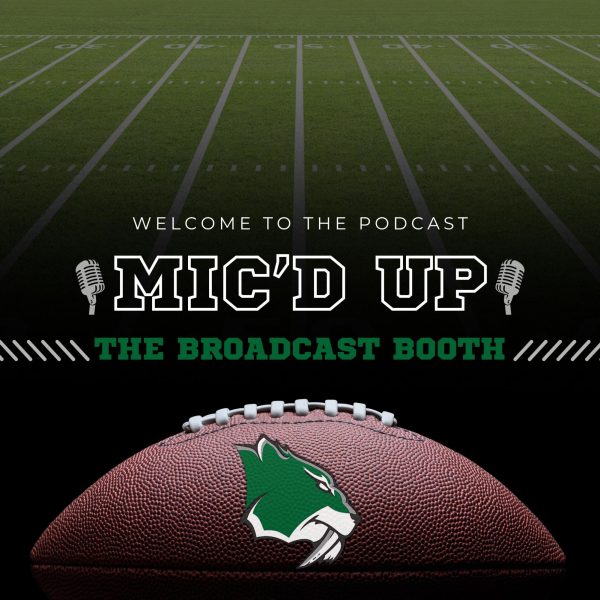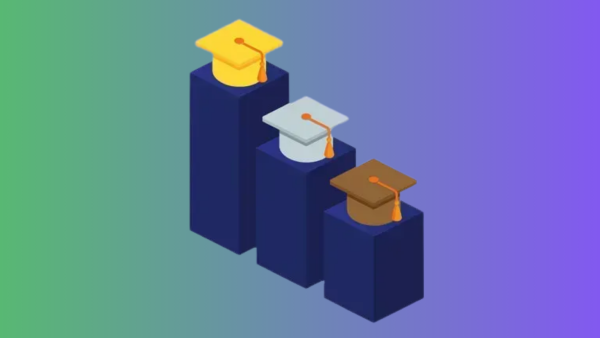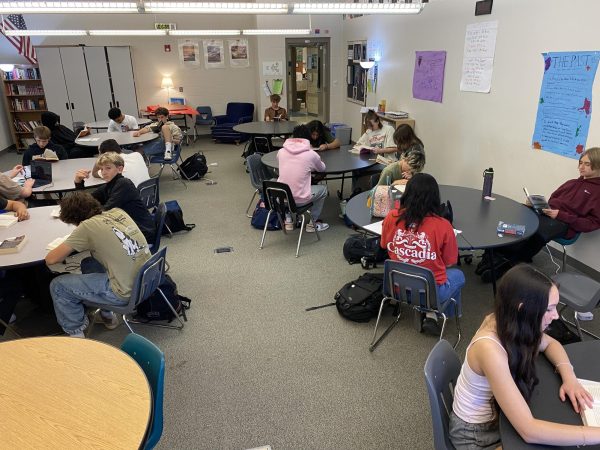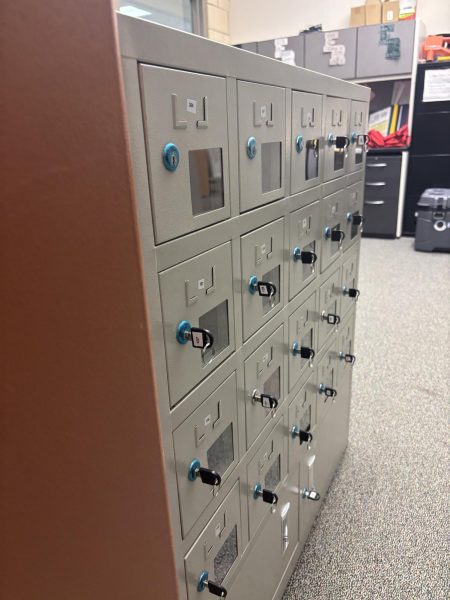Fossil Ridge Speech and Debate Team adapts to a new normal
The Fossil debate team celebrates completing a tournament last year, which outcomes qualified them for State.
What once was a gathering of hundreds of high school students now looks almost unrecognizable. Instead of taking a bus towards a school to compete and spending the day with fellow debaters, these tournaments have turned virtual. The Fossil Ridge High School Speech and Debate Team was just as shocked as any other school organization when life as we knew it closed down. The team was neck deep in their season when COVID-19 sabotaged their plans for the State and National tournaments. But this year, the team of about 15 has a new outlook to fit this change of course.
The debate team, as well as many arts programs at Fossil, follow Colorado High School Activities Association(CHSAA) guidelines. The activities director of CHSAA released a mandate in late August stating that all competitions would be held virtually if possible.
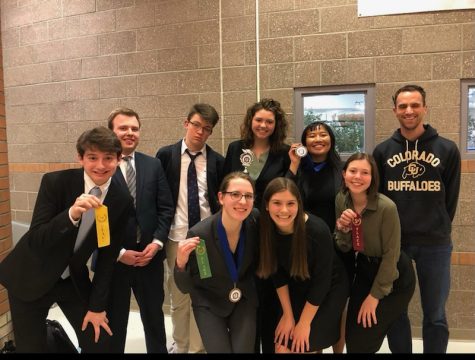
When looking towards the eventual return to in-person competitions, Robert Jackson, the sponsor and coach of the debate team, was previously hopeful for a return to in-person competitions by the state tournament in spring, “but now I am not so sure.” Jackson has led the team through some of its most successful seasons before the pandemic. He has noticed some discouragement amongst the participants. Jackson knows students will miss the connections they have with other debaters throughout the state and all the skills that speech and debate crafts. Jackson says there is something missing in these virtual debates, as there is nothing like “commanding the room with your public speaking talents, or being in a vigorous debate that requires you to draw on all your research and wit”.
He is able to see some advantages to the virtual format. National-level online competitions are more accessible, encouraging debaters from around America to participate. Olivia Wang, a current junior and three-year competitor, has represented Colorado in tournaments hosted by Duke, Yale, and other well known schools and will continue through the spring.
Wang competes in Dramatic Interpretation, an event defined by a ten minute performance of a published work. This event focuses on “student’s ability to convey emotion through the use of a dramatic text,” says the National Speech and Debate Association. Wang is admired by many on the team, as she continues to qualify for State and National tournaments. Obviously this season seems nothing like the last, but Wang still aspires “to win local tournaments and participate in more national tournaments” and “hopefully win some of those as well,” she states. According to her, the format was challenging at the start but she has grown to use it to her advantage.
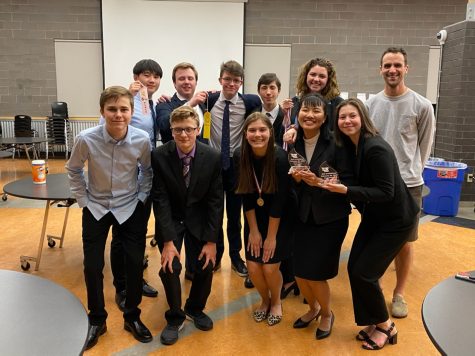
Connor Tyree, a senior, continues to encourage the team as captain this year. Last year, his goal was to “get as many new people to join debate as possible,” but after the school shut down, that seemed impossible. After some social media updates and relentless recruitment, they managed to increase their participation after all. Tyree’s current goal for the team “is to make sure that we stay connected and motivated,” and reminds its members: “don’t give up on this season because we can still be successful”.
Tyree, like the rest of his team will miss the special friendships that are formed over Saturday tournaments but chooses to approach this with a refreshing sense of gratitude, stating that “we are lucky that we have the ability and resources to participate online.” Tyree competes in Lincoln-Douglas Debate, which now takes the form of a live video chat, adding that they “are still in uncharted waters but we’re figuring it out as we go”.
Jackson’s goals have not changed much either. His usual goal to “Invade State” remains a plan, regardless of what “format we compete in or whom we compete against”. After working with some members via Google Meets on their events, he still saw “that magic and passion that comes out when all the research comes together to make an argument…” Through all the uncertainties, the debate team will persevere. Although the future of debate tournaments are still in question, there is no doubt that the Fossil team is more dedicated than ever.
Your donation will support the student journalists of Fossil Ridge High School. Your contribution will allow us to purchase equipment and cover our annual website hosting costs.
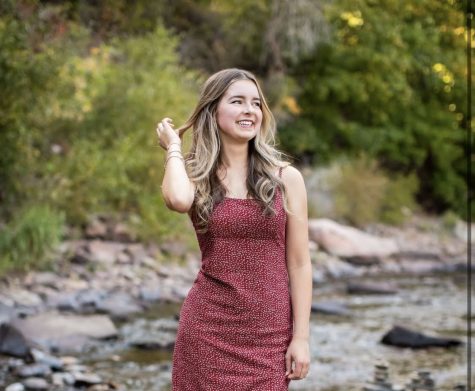
Caroline Sears is thrilled to be Editor in Chief along with Melissa May this year. The pair hopes to improve the paper in every way, but they are focusing on ensuring the stories are meaningful and that the paper’s staff is connected.
She is passionate about theatre and her favorite subject is English....



